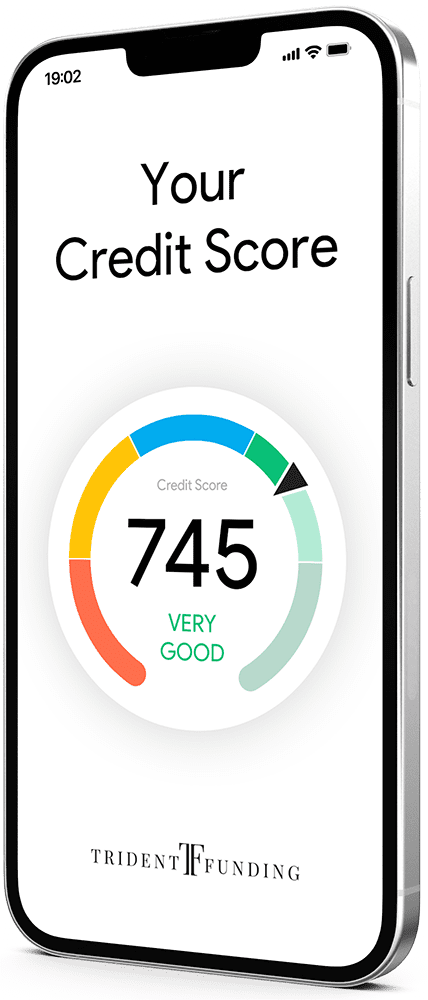Purchasing a boat can be an exciting experience. However, boats can also be very expensive. Most people need to take out a boat loan in order to afford one. The process of getting approved for a traditional boat loan usually involves verifying your income by providing pay stubs, tax returns, and other financial documents. But what if you’re self-employed or have income that is difficult to document? Is it still possible to get financing for a boat without income verification?
The answer is yes! There are boat loan lenders that offer “no income verification” or “stated income” boat loans. I’ll explain more about how these loans work, their pros and cons, and tips for getting approved.
What are No Income Verification Boat Loans?
A no income verification or stated income boat loan allows borrowers to get financing without having to provide documentation to prove their income Instead, applicants simply “state” their income on the loan application.
This type of financing can be helpful for
-
Self-employed individuals who don’t receive regular paychecks or W-2s. This includes business owners, independent contractors, gig workers, etc.
-
Borrowers with commission-based jobs where income fluctuates.
-
Retirees or others with investment income that is hard to document.
With a no income verification boat loan, lenders will still review your credit, assets, and debts to determine if you qualify. But they do not ask for typical income documentation.
Pros and Cons of No Income Verification Boat Loans
Pros:
- Get approved even if you can’t easily document your income
- More flexible qualification requirements
- Quicker application process without income verification
Cons:
- Higher interest rates and costs than standard loans
- Lower maximum loan amounts
- Need excellent credit to qualify
So while these loans provide more options, you will pay a price in terms of higher rates and fees.
Tips for Getting Approved
Here are some tips to boost your chances of getting approved for a no income verification boat loan:
-
Have a credit score over 720. Lenders will scrutinize your credit report closely since they aren’t verifying your income. Excellent credit improves your odds.
-
Make a larger down payment. At least 20% down is recommended to offset the higher risk for lenders.
-
Keep debt levels low. Don’t take on new debts before applying. Total debt should be less than 50% of total income.
-
Have significant assets. Liquid assets like savings and investments strengthen your application.
-
Be conservative on income. Don’t exaggerate income or lenders may want verification later.
-
Shop multiple lenders. Compare offers to find the best rates and terms. Online lenders tend to offer these loans more frequently.
As long as you have great credit, manageable debts, and money for a down payment, getting approved without income documentation is definitely possible. But make sure to shop around with both online and traditional lenders to get the right loan for your needs.
Case Study: Financing a Boat Purchase Without Income Verification
To better understand how this works, let’s walk through a real-life example.
John wanted to purchase a $150,000 boat but didn’t think he could qualify for a traditional loan. As a self-employed consultant, his income varies from month to month and is difficult to document.
Here is how he was able to get approved for a boat loan without income verification:
Credit score: John has a credit score of 740, reflecting a long history of on-time payments.
Down payment: He saved up $45,000 for a 30% down payment. This helped offset the higher risk of a no income verification loan.
Debts: John has a low debt-to-income ratio of only 15% since he rarely uses credit cards and his cars are paid off.
Assets: He has $250,000 in retirement and investment accounts to demonstrate assets.
Stated income: He stated his annual income as $120,000, a reasonable amount for his profession.
With these factors, John qualified for a 10-year no income verification boat loan of $105,000 with a competitive interest rate. His boat payments now fit comfortably within his budget.
This example shows that with the right qualifications, you may be able to finance that dream boat without having to document your income.
Finding Lenders That Offer No Income Verification Boat Loans
So where can you find lenders that offer boat loans without income documentation? Here are some options:
-
Online lenders: Companies like LendingTree, LoanBuilder, and Lightstream frequently provide stated income boat loans.
-
Credit unions: Some credit unions offer no income verification loans, especially to existing members.
-
Banks: A few large banks like Citi and Bank of America may also approve loans without income docs for borrowers who meet strict criteria.
-
Boat dealers: Dealers that partner with multiple lenders may have access to no doc boat loans through their financing networks.
-
Forums: Check boating forums like The Hull Truth where members discuss lenders who provide non-traditional boat loans.
The best place to start is online lenders, then expand your search to credit unions and boat dealer partners in your area. With some diligent research, you can find financing options even without income verification.
Alternatives to Explore if You Don’t Qualify
While no income verification loans provide more flexibility, they aren’t guaranteed. If you apply but don’t get approved, here are two other options to consider:
Get a co-signer: Asking a family member or friend with good credit to co-sign improves your chances. Their income can supplement what you state on the application.
Save up a larger down payment: Coming up with 50% or more down substantially reduces the lender’s risk, increasing your odds of approval without income documentation.
The Bottom Line
Boat loans without income verification offer a way to finance your dream boat without all the paperwork and documentation required for standard loans. If you have great credit, healthy assets, and some money to put down, you may qualify even as self-employed. But make sure to compare multiple lenders, scrutinize the terms, and provide accurate information on your application. With the right preparation, you can get on the water even without pay stubs or tax returns in hand.
How Boat Loans Work

If you’re new to the boat financing process, you may wonder how boat loans work. There are a few important things you should know right up front. A boat loan works much like an auto loan but for a longer time period. Typically, boat loan terms range from 10 to 20 years. This is the length of the loan and the time period you have to pay off the loan.
This boat loan term is determined by a number of factors including the borrower’s credit score, the age of the boat, and the cost of the vessel. Typically, more expensive boats have longer loan terms, which make the monthly payments more affordable because they’re spread out over a longer period of time. For example, a $1 million yacht may have a 20-year loan term and a $50,000 fishing boat may only have a 10-year loan term. It’s important to choose a boat loan term that works best for your budget and your goals. Additionally, consider any fees or charges associated with your loan, such as origination fees, closing costs, and pre-payment penalties.
If you’re a well qualified buyer with a good credit score, you may have some say over your loan term. If you can manage higher monthly payments and want to pay the loan off as quickly as possible to avoid extra interest, then you can choose a shorter term. And vice-versa, if you want your monthly payments as low as possible, you may want to choose the longest term available.
While boat loans aren’t necessarily hard to get, you still need to be qualified. Each lender will have their own set of boat loan requirements. Just remember, boat loans aren’t hard to get if you pay your bills on time, have consistent income, can afford a boat, and have a good credit score. Boat loans are generally more difficult to get than auto loans but easier than a home mortgage.
In addition to loan terms, you should also know about a boat loan rate. This is the interest rate, you, the borrower, are being charged to borrow money from the lender to purchase the boat. You’re agreeing to pay back the loan amount plus the agreed upon interest during the loan term. Boat loan interest rates can vary greatly, so it’s important to compare rates from multiple lenders in order to find the best deal. You should also consider the size of your down payment, as this can affect the overall cost of your loan and your monthly payments.
The boat serves as collateral for the lender, in the unlikely event that you don’t pay back the loan, and nothing can be worked out. Boat loan rates vary by market conditions, the age and price of the boat, as well as the borrower’s credit score, and overall financial profile. As of July 2023, Trident Funding offers rates starting at 7.24% for well qualified borrowers with great credit scores.
When you’re ready to apply for a boat loan, there are a few requirements you need to meet. Lenders will typically require proof of income and good credit, as well as documentation about the boat you’re purchasing, such as its make and model, year, and value.
ApplyTell us about the type of boat you’re looking for and a few details about your financial situation and we’ll match you to the marine lender that’s right for you.
Buying a boat can be an exciting experience. It can also be expensive. A boat is also usually a large purchase, second only to a primary residence, so most people who buy boats will get a loan to fund this major expense. A boat loan is a type of loan used to finance the purchase of a boat, such as a yacht, sailboat, or fishing boat. Boat loans are similar to other types of loans, such as auto loans or home mortgages, in that they provide borrowers with the funds needed to purchase the asset upfront, and then require the borrower to repay the loan over time, typically with interest.
Boat loans are typically secured loans, meaning that the boat serves as collateral for the loan, which can help lower the interest rate on the loan. Boat loans can be obtained from a variety of lenders and the terms and conditions of the loan will depend on the borrower’s credit history, the amount of the loan, and the length of the loan term. How to Qualify What You Need to Apply How to Qualify Boat loans aren’t hard to get, but each lender will have their own set of boat loan requirements. You don’t have to have perfect credit or make a million dollars to get a boat loan. You will generally need a credit score of at least 600, enough money for a down payment of 10 to 20 percent of the cost of the boat, and you should be able to prove that you can afford the boat loan payments. If you’re not sure if you qualify for a boat loan, use a

Boat Loans 101: Should You Finance A Boat?
FAQ
Do boat loans require proof of income?
What is the minimum credit score for a boat loan?
Is it hard to get a boat loan with bad credit?
What credit score do you need for Boatzon?
